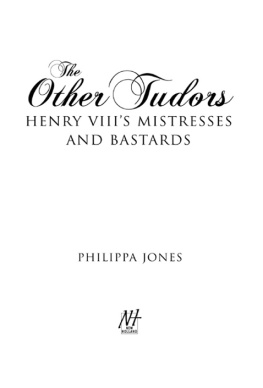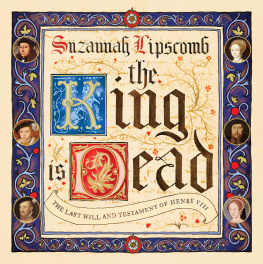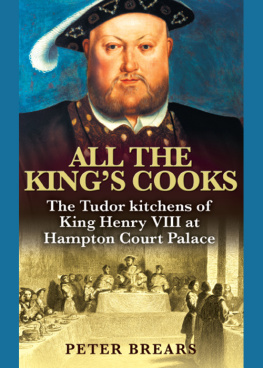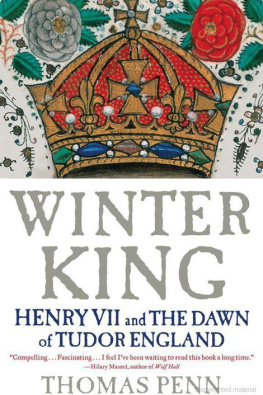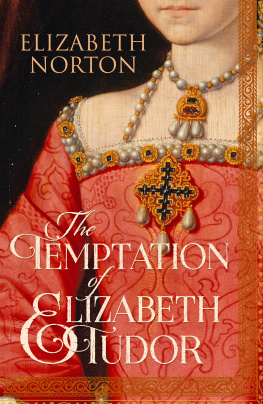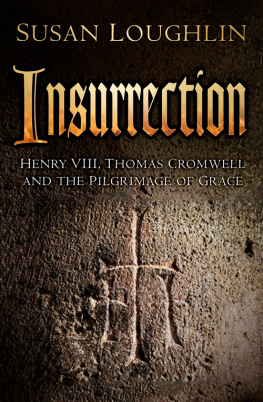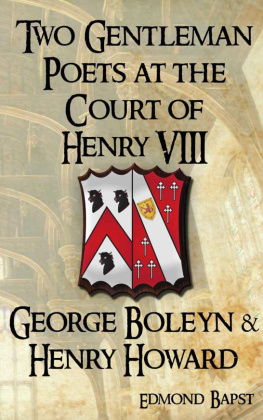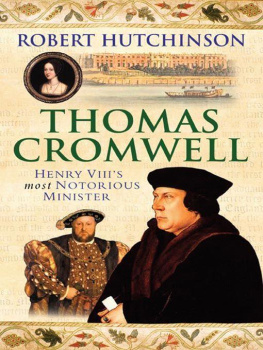CONTENTS
About the Book
Derek Wilson examines a set of relationships which illustrate just how dangerous life was in the court of the Tudor lion. He tells the interlocking stories of six men all, curiously, called Thomas whose ambitions and principles brought them face to face with violent death. Thomas Wolsey was an accused traitor on his way to the block when a kinder death intervened. Thomas More and Thomas Cromwell, whose convictions and policies could scarcely have been more different, both perished beneath the headmans axe. Thomas Howard, Duke of Norfolk, would have met the same end had the kings own death not brought him an eleventh-hour reprieve. Thomas Wriothesley, Earl of Southampton, and Thomas Cranmer, Archbishop of Canterbury, though outliving the monarch, perished as a result of that war of ambitions and ideologies which rumbled on after 1547. Wriothesley succumbed to poison of either body or mind in the aftermath of a failed coup. Cranmer went to the stake as a heretic at the insistence of Mary Tudor, who was very much the daughter of the father she hated. In the Lions Court is an illuminating examination of the careers of the six Thomases, whose lives are described in parallel their family and social origins, their pathways to the royal Council chamber, their occupancy of the siege perilous, and the tragedies which, one by one, overwhelmed them. By showing how events shaped and were shaped by relationships and personal destinies, Derek Wilson offers a fresh approach to the political narrative of a tumultuous reign.
About the Author
Derek Wilson came to prominence thirty years ago, after graduating from Cambridge, with A Tudor Tapestry: Men, Women and Society in Reformation England. This was followed by several critically acclaimed and bestselling books, such as: Rothschild: A Story of Wealth and Power, Sweet Robin: Robert Dudley Earl of Leicester, Hans Holbein: Portrait of an Unknown Man and, most recently, The King and the Gentleman: Charles Stuart and Oliver Cromwell 15991649. He has also written and presented numerous radio and television programmes. Now, after three decades of study and reflection he returns to those themes he first explored in A Tudor Tapestry.
More details can be found on his website: www.derekwilson.com

This ebook is copyright material and must not be copied, reproduced, transferred, distributed, leased, licensed or publicly performed or used in any way except as specifically permitted in writing by the publishers, as allowed under the terms and conditions under which it was purchased or as strictly permitted by applicable copyright law. Any unauthorized distribution or use of this text may be a direct infringement of the authors and publishers rights and those responsible may be liable in law accordingly.
Version 1.0
Epub ISBN 9780753551301
www.randomhouse.co.uk
Published by Pimlico 2002
2 4 6 8 10 9 7 5 3 1
Copyright Derek Wilson 2001
Derek Wilson has asserted his right under the Copyright, Designs and Patents Act 1988 to be identified as the author of this work
First published in Great Britain by Hutchinson, 2001
Pimlico edition 2002
Pimlico
Random House, 20 Vauxhall Bridge Road,
London SW1V 2SA
Addresses for companies within The Random House Group Limited can be found at: www.randomhouse.co.uk/offices.htm
The Random House Group Limited Reg. No. 954009
www.randomhouse.co.uk
A CIP catalogue record for this book is available from the British Library
ISBN 9780712665292
You often boast to me that you have the kings ear and often have fun with him, freely and according to your whims. This is like having fun with tamed lions often it is harmless, but just as often there is fear of harm. Often he roars in rage for no known reason, and suddenly the fun becomes fatal.
Thomas More
LIST OF ILLUSTRATIONS
INTRODUCTION
There were lions in London. Thomas More, born and bred in the City, knew them well. They were the Kings Beasts, housed in the Tower menagerie, and a major tourist attraction. Did More take Erasmus and other visiting foreign scholars to look at these awesome, savage creatures prowling around their semicircular enclosure in the Barbican or Lion Tower? Was he a spectator at any of the bloody displays occasionally mounted when mastiffs or bears were matched unequally with these wild royal animals? What is beyond doubt is that this is what he had in mind when he likened the court of Henry VIII to a lion pit in which the magnificent and deadly king of beasts held sway. Sharing with the King in all the sumptuous diversions of palace life could be fun but often he roars in rage for no known reason, and suddenly the fun becomes fatal.
More knew, as anyone close to the Tudor monarch knew, that life at court was precarious. The monolithic personality of King Harry and its impact on the men and women who shared his life are the ingredients in a saga of unending fascination. It has become commonplace for those wishing to understand the reign to focus on the Six Wives. The tragic comings and goings of three Catherines, two Annes and a Jane, summed up in the mantra
Divorced, beheaded, died,
Divorced, beheaded, survived
have suggested a simple rsum of the second Tudors reign. This has always seemed to me inadequate, not because it reduces history to a sequence of personal relationships history is nothing if it is not a chronicle of human interaction but because it does not get to grips with the real issues over which the nations leaders quarrelled, fought and died in the first half of the sixteenth century.
That is why, in this book, I propose a different set of relationships which I believe offers a much more illuminating approach to the court and government of Henry VIII. I can even suggest an alternative mortuary mnemonic, though admittedly one which may not come quite so trippingly off the tongue:
Died, beheaded, beheaded,
Self-slaughtered, burned, survived.
Such were the exits of the six men most closely involved with the King in the governance of the empire of England between 1509 and 1547. Thomas Wolsey was an accused traitor on his way to the block when a kinder death intervened. Thomas More and Thomas Cromwell, whose convictions and policies could scarcely have been more different, both perished beneath the headsmans axe. Thomas Howard, Duke of Norfolk, would have met the same end had the Kings own death not brought him an eleventh-hour reprieve. Thomas Wriothesley, Earl of Southampton, and Thomas Cranmer, Archbishop of Canterbury, though outliving the monarch, perished as a direct result of that faction war of ambitions and ideologies which rumbled on after 1547. Wriothesley succumbed to poison of either body or mind in the aftermath of a failed coup. Cranmer went to the stake as a heretic at the insistence of Mary Tudor, who was very much the daughter of the father she hated. Manifestly, the atmosphere at Henrys Council table was no healthier than that within his bed.
The goings-on at the court of King Harry have fascinated generations of historians, students, novelists, playwrights, film directors and armchair enthusiasts, and that for many reasons. Not least among them is the feeling that we know the main occupants of this petit-monde. Whereas the personnel of earlier royal households are mere names or stiff-visaged icons, thanks to the incomparable genius of Hans Holbein, we can people the chambers and corridors of early Tudor Greenwich and Whitehall with men and women whose faces are familiar. The belief that, therefore, we know them may be illusory but it is none the less powerful for that Proud Wolsey, saintly More, scheming Cromwell, slippery Wriothesley, innocent Cranmer and arrogant Howard are stereotypes which, as we shall see, evaporate under the are lights of research but those very stereotypes do provide us with a basis for closer observation.
Next page

